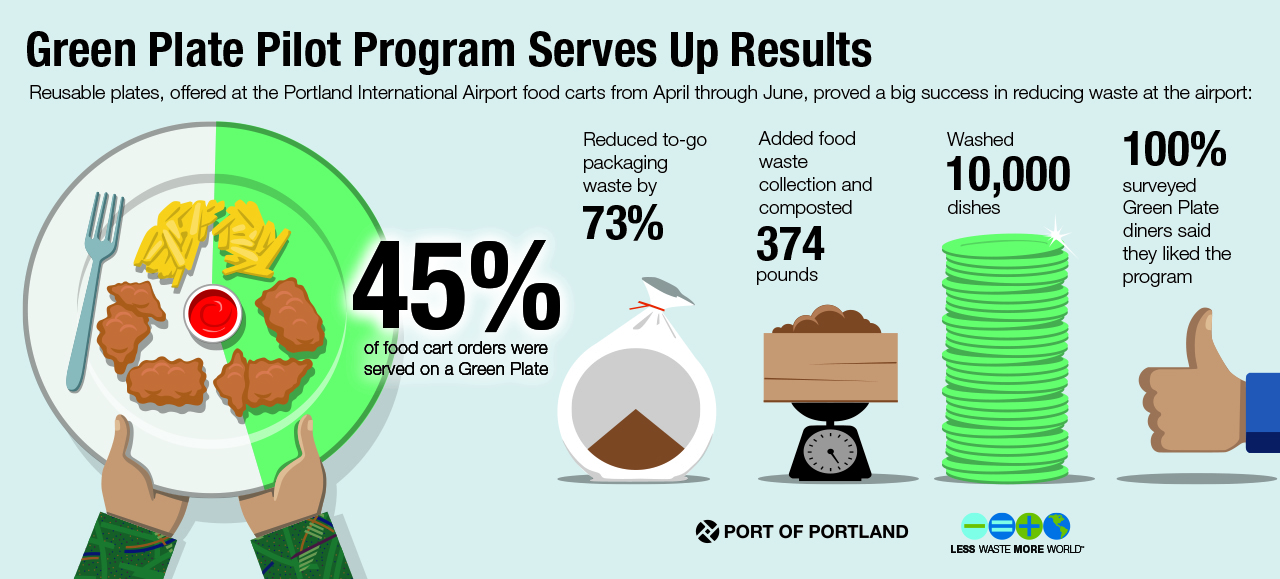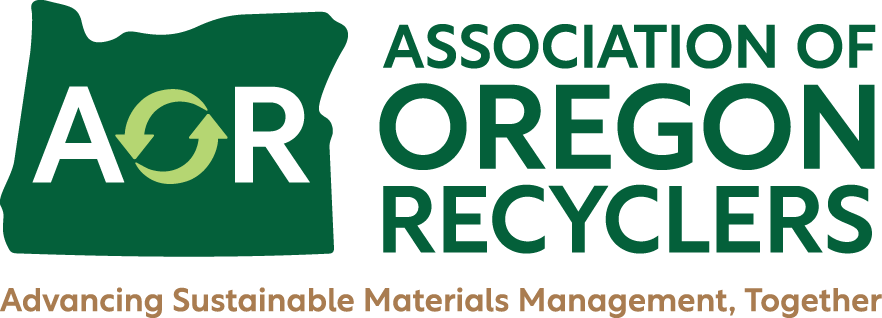2018 Recycler of the Year – Business or Institution Winner: Port of Portland, Green Plate Pilot Program
Green Plate Pilot Program at Portland International Airport
Reducing waste at an international airport is challenging. Travelers are rushed, stressed, and sustainable options are often limited. To help reduce the 11 tons of waste generated each day at Portland International Airport (PDX), the Port of Portland tested a new "old" way of serving food in one of the airport's food courts during the summer of 2017. The Green Plate Pilot Program (Program) provided diners the option to use durable dishes silverware, and as it turned out people overwhelmingly preferred it!
The three-month Program, supported by a DEQ grant, evaluated the feasibility of using durable dishes and silverware in an airport food court setting, and identify barriers and opportunities for all stakeholders.
Studies showed that nearly 80% of food court customers remained nearby to enjoy their food, and more than 80% of the those taking food to-go were airport employees. These findings highlighted an opportunity to try a more sustainable option for serving food.
The Program allowed food court restaurants to serve customers on durable plates and provide real silverware. Dirty dishes were collected and washed by janitorial staff and returned to the participating restaurants. In the nearby dish room, food scraps were diverted for compost collection before dishes were washed. During the brief, 3-month program nearly 10,000 "green" plates were (re)used. Disposable to-go waste was reduced by 73% and nearly 400 pounds of post-consumer food waste was diverted from the landfill.
Stakeholder collaboration was crucial and included regular communication and feedback from restaurants, janitorial employees, Port departments, and customers. Responses from stakeholders were extremely positive. 100% of surveyed customers said they liked the Program and wanted it to continue. Restaurant employees reported that the Green Plate program was easy to use and made their food more appealing. In some cases, the plates provided opportunities for restaurants to adjust portion size. During the study nearly half of the orders were served on Green Plates, reducing restaurant expenses between $150 -
$700 per month (savings varied based on to go container type). Janitorial stakeholders indicated there was capacity to handle more dishes without increasing staff.
The Green Plate Pilot Program proved to be a successful case study that demonstrated how durable dishware can enhance the dining experience, reduce waste, and provide a more sustainable alternative to clamshells and plastic forks. At Program conclusion, all stakeholders were excited about the possibility of durable dishes becoming the norm at PDX.
The success of the Green Plate Pilot Program at PDX may encourage other airports (and food courts) to move toward durable dishware options. Currently, the Port is looking at ways to continue the program and to design durable dishware into airport expansion and restaurant agreements



